Disclosure: This article contains affiliate links. We may earn a commission from purchases at no extra cost to you, which helps our travel content.
The moment my feet touched Mississippi soil, I felt the rhythm in the ground. That's not poetic exaggeration—the Delta has a pulse that runs through its red earth, flowing alongside the mighty Mississippi River that gives this region its name. After documenting traditional weaving in Vietnam and woodcarving in Romania, I found myself drawn to another form of cultural preservation: the birthplace of blues music. With my trusty backpack and an insatiable curiosity for disappearing traditions, I set out for a week in Greenville, Mississippi—a place where history, music, and craftsmanship intertwine in ways both painful and beautiful.
Finding the Heartbeat of the Delta
Greenville sits along the Mississippi River like a weathered jewel—not the polished tourist destination you'd find elsewhere, but authentic in ways that matter more. My first morning, I wandered downtown with the rising sun, passing historic buildings that have witnessed generations of Delta life.
The centerpiece of my exploration became the Highway 61 Blues Museum, a modest building housing an immense cultural legacy. For $10, I spent nearly three hours mesmerized by vintage instruments, handwritten lyrics, and photographs documenting blues legends who shaped American music. The volunteer curator, Mr. Johnson, noticed my interest in the handcrafted instruments and invited me behind the display to examine a cigar box guitar made by a local artisan.
"These were born from necessity," he explained, his fingers tracing the recycled materials. "Folks couldn't afford store-bought, so they created music from what they had."
That evening, I found myself at Walnut Street Blues Bar, where $5 got me through the door to experience live Delta blues that vibrated through the floorboards. I recorded snippets on my portable audio recorder, capturing both the music and ambient sounds that make the Delta experience so immersive.
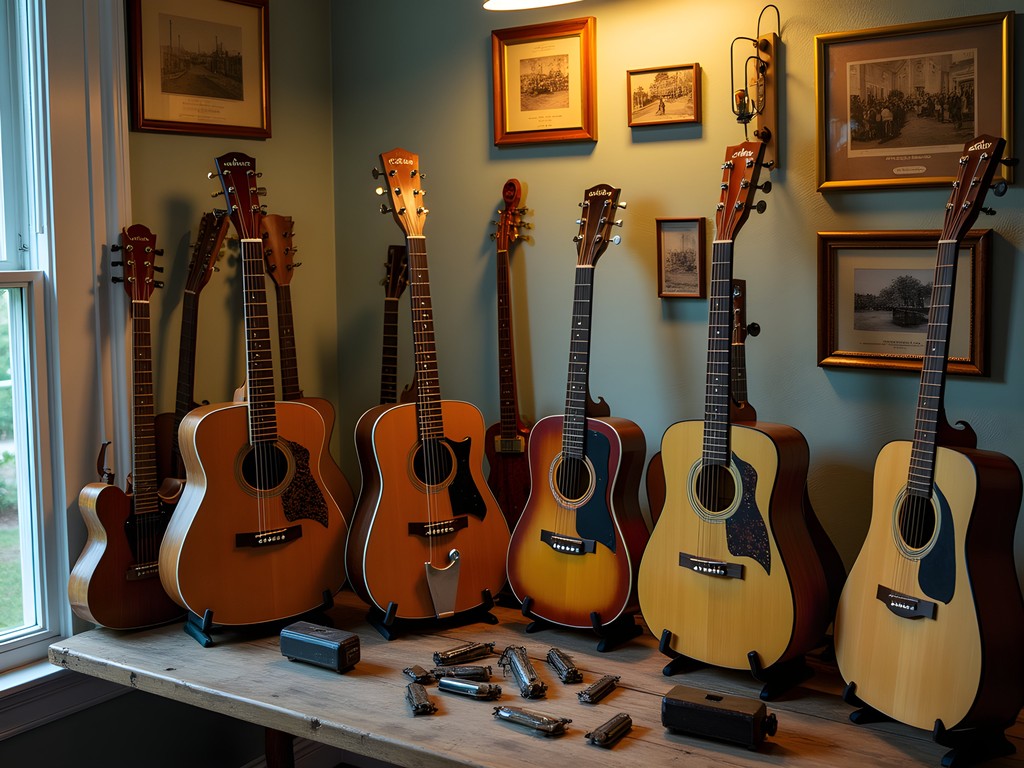
💡 Pro Tips
- Visit the Highway 61 Blues Museum on weekday mornings when it's less crowded
- Talk to the museum volunteers—many have personal connections to local musicians
- Bring cash for small venues and street performers
The Underground Craft Scene
While blues music might be Greenville's most famous export, I discovered a thriving undercurrent of traditional craftsmanship that rarely makes it into travel guides. Through a chance conversation with a barista at Mighty Mississippi Coffee Company (try the Delta Brew!), I connected with Ms. Eloise, a 78-year-old quilter whose family has passed down textile techniques for generations.
Ms. Eloise welcomed me into her home workshop, where fabric scraps transformed into geometric stories. "Every piece has meaning," she explained, showing me how certain patterns originated from coded messages used during the Underground Railroad era. For three hours, she demonstrated techniques while sharing stories that wove together personal history and the region's complex past.
I documented her work using my ring light, which proved invaluable for capturing the intricate details of her quilting without disrupting the intimate setting of her home studio.
The next day, I visited the Delta Artisans Guild, a cooperative workshop where local craftspeople preserve traditional skills from woodcarving to basket weaving. For $25, I joined a half-day workshop learning basic Delta basket weaving techniques using native river cane—a practice with roots in both indigenous and African American traditions.
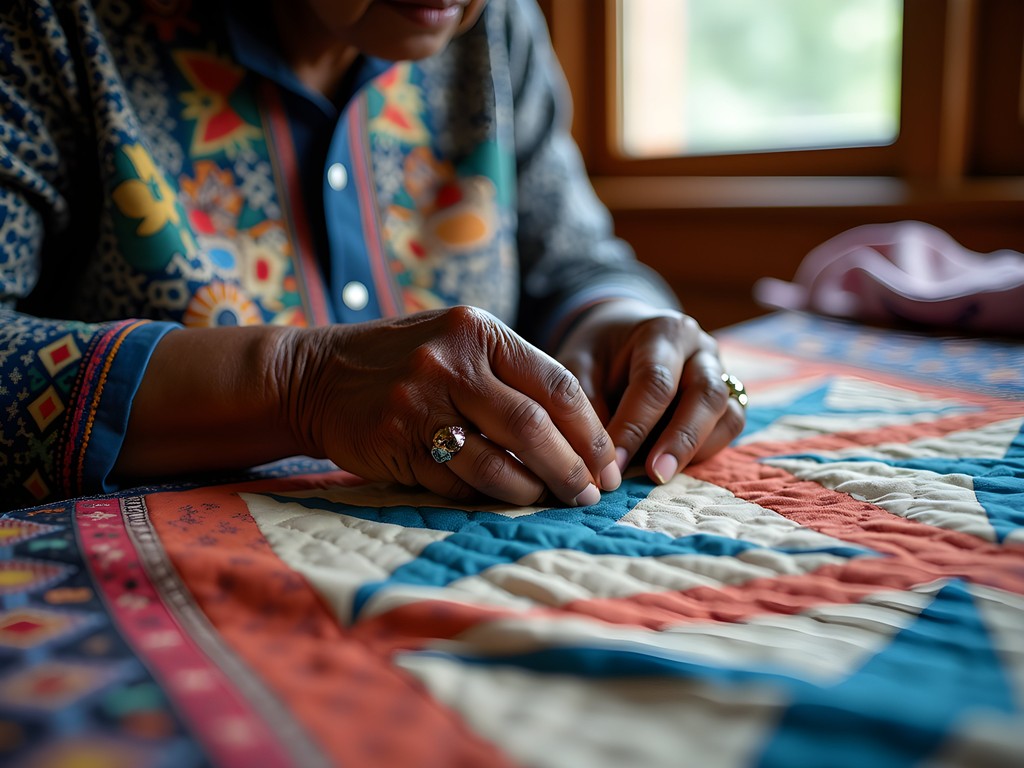
💡 Pro Tips
- Contact the Delta Artisans Guild at least a week ahead to arrange workshop participation
- Bring a small gift when visiting local artisans in their homes (I brought coffee beans from my hometown)
- Ask permission before photographing craftspeople or their work
Beneath the Surface: Greenville's Hidden Spaces
My fascination with underground spaces led me to discover aspects of Greenville rarely seen by casual visitors. The historic Flood of 1927 dramatically shaped the city's landscape, and evidence remains for those who know where to look.
I joined a specialized tour offered by the Greenville History Museum ($15) that explores the network of flood control infrastructure, including access to a section of the levee system that protected the city during subsequent floods. Our guide, a retired Army Corps of Engineers employee, explained how the community's relationship with the river evolved through triumph and disaster.
The tour unexpectedly connected to my interest in traditional crafts when we visited a workshop where artisans create scaled models of historic riverboats using techniques unchanged for generations. I was transfixed watching Mr. Raymond carve miniature paddlewheels with tools his grandfather made.
For self-guided exploration, I relied heavily on my waterproof notebook to document coordinates and details about lesser-known sites. The Delta's unpredictable weather means preparation is essential—I was grateful for my waterproof phone case during a sudden downpour while photographing river markers.
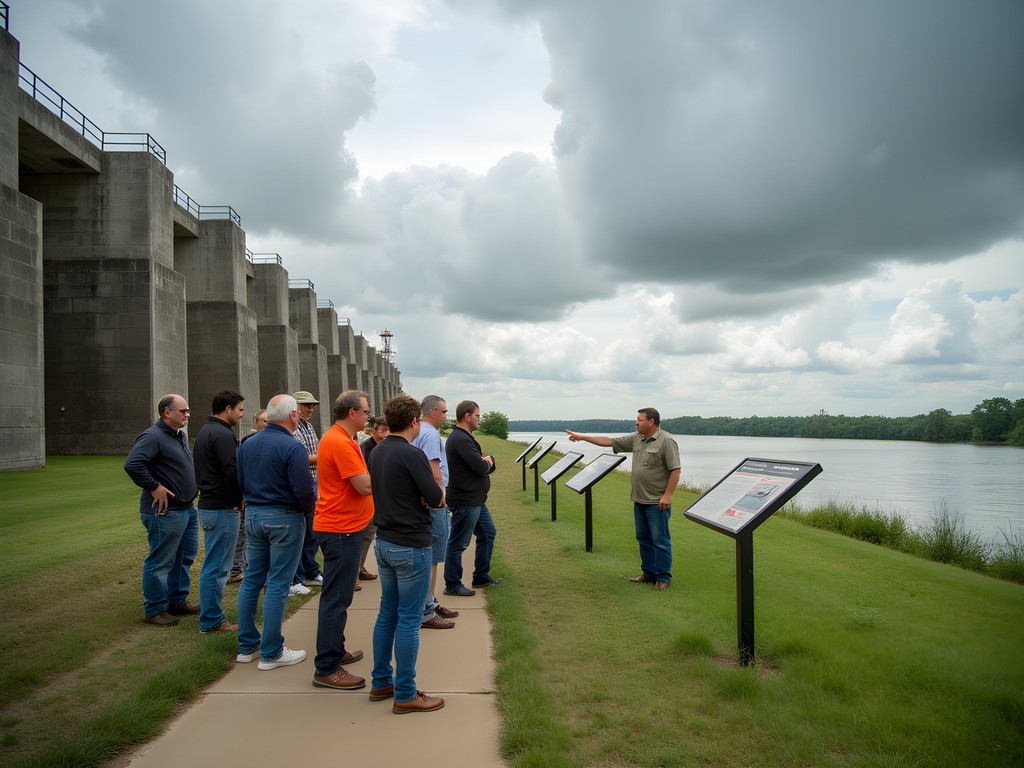
💡 Pro Tips
- Book the flood infrastructure tour at least two days in advance
- Wear closed-toe shoes that can handle mud for levee explorations
- Download offline maps as cell service can be spotty near the river
Budget-Friendly Blues & Eats
Traveling solo on a budget doesn't mean missing authentic experiences—in fact, in Greenville, it often enhances them. I stayed at the Greenville Inn & Suites ($65/night), a no-frills but clean establishment where the owner, Mr. Patel, shares recommendations tailored to each guest's interests.
For meals, I alternated between local institutions and grocery picnics. Doe's Eat Place is famous for steaks that could feed a family, but their tamales (a Delta specialty with fascinating multicultural origins) make an affordable lunch at $10. The Crown Restaurant's hot tamales rival any I've tried across the country.
For blues experiences, timing matters. Many venues have free or discounted shows on weeknights. I used my noise-canceling earbuds to record snippets of performances (always asking permission first) to study the regional playing styles unique to the Delta.
The most memorable evening cost nothing: a spontaneous porch jam session I stumbled upon while walking through the Baptist Town neighborhood. After respectfully listening for a while, the musicians invited me to sit and learn about their self-taught techniques and family musical legacies.
For souvenirs that support local artisans, I visited the Greenville Farmers Market (Saturdays) where craftspeople sell small items like hand-carved wooden harmonicas and miniature cotton bale art pieces starting at $15—meaningful mementos that connect to the region's agricultural and musical heritage.
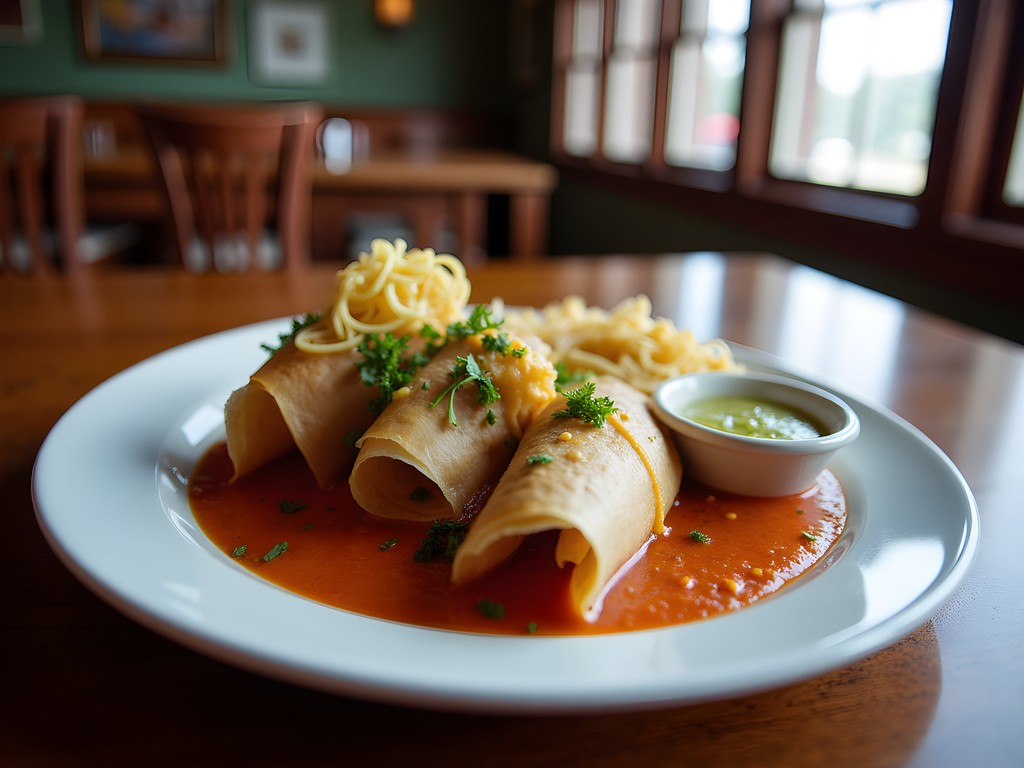
💡 Pro Tips
- Ask at your accommodation about musician-recommended venues rather than just tourist spots
- Visit Doe's Eat Place during off-hours (2-5pm) for shorter waits
- Bring cash for small establishments and street food vendors
Vintage Treasures Along Highway 61
My weakness for vintage shopping found perfect satisfaction in the Delta, where antique stores and junk shops hold unexpected treasures. Greenville's downtown has several establishments, but the real adventures happened when I ventured out along Highway 61—the famous Blues Highway.
I rented a bicycle from Bike the Delta ($20/day) and pedaled to neighboring towns, stopping at roadside shops that blend antiques, folk art, and local crafts. In Leland, just 10 miles away, I discovered a former general store now housing an eclectic collection of Delta artifacts, including vintage records and handmade instruments.
My most precious find: a 1940s harmonica instruction booklet with handwritten notes from its previous owner, a local musician who had penciled in his own techniques ($8). I carefully store such fragile items in my document organizer, which keeps ephemera protected during travel.
In Winterville, I found a small shop specializing in textiles where the owner showed me quilting squares made from Depression-era flour sacks—tangible connections to the resourcefulness that defined Delta life. For photographers, these shops offer incredible texture and color; I captured details using my clip-on smartphone lenses when lighting was too dim for standard shots.
Tip: When vintage shopping in the Delta, ask about the stories behind items. Many shopkeepers are informal historians who can connect objects to local cultural narratives.
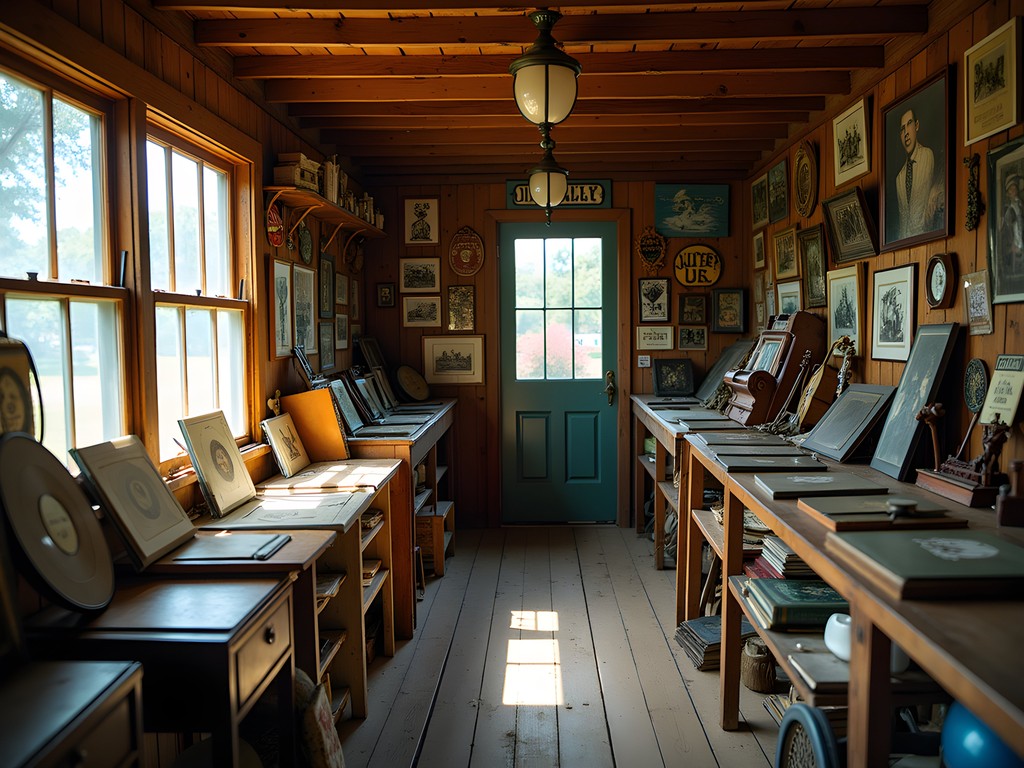
💡 Pro Tips
- Bring small bills for negotiating at informal roadside shops
- Allow extra time—conversations with shop owners often reveal unexpected local history
- Check opening hours before setting out as many rural shops keep irregular schedules
Final Thoughts
As my week in Greenville came to a close, I sat by the Mississippi River at sunset, listening to a recording of Ms. Eloise humming while she quilted—a sound as authentic to this place as the blues guitar I'd heard in smoky venues. The Delta doesn't reveal itself to rushed travelers or those seeking polished attractions. Its treasures lie in patient conversations, in the callused hands of craftspeople, and in traditions that persist despite decades of hardship and change.
The blues was born from struggle, but it transforms pain into something profound and shareable. I came seeking music but found so much more: a complex cultural tapestry where craftsmanship, resilience, and creativity intertwine. As someone dedicated to documenting disappearing traditions, I found the Mississippi Delta to be not a museum of the past but a living workshop where heritage evolves while maintaining its soul.
When you visit, bring your curiosity and respect. Ask questions. Listen deeply. Support local artisans. And when you hear that distinctive Delta blues note bend in ways that defy musical notation, remember you're experiencing something that can never be fully captured—only felt, preserved, and passed along through those who care enough to listen.
✨ Key Takeaways
- Greenville offers authentic cultural experiences at budget-friendly prices for solo travelers
- Connecting with local artisans provides deeper insights than standard tourist attractions
- The Mississippi Delta's craft traditions are intimately connected to its musical heritage
- Solo travel in less-touristed areas often leads to more meaningful cultural exchanges
📋 Practical Information
Best Time to Visit
Fall (September-November)
Budget Estimate
$75-100 per day including accommodations
Recommended Duration
5-7 days
Difficulty Level
Moderate

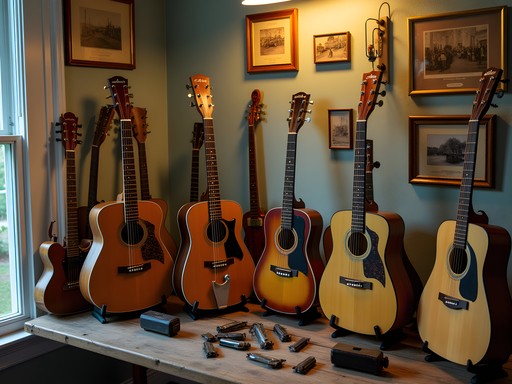
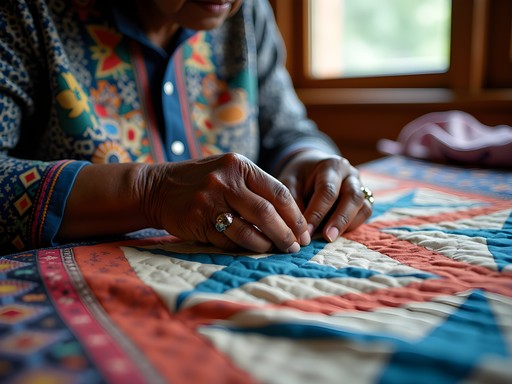
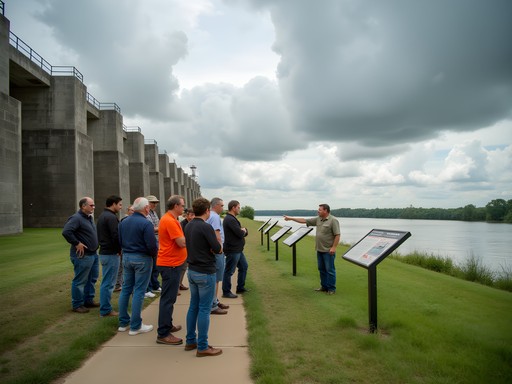
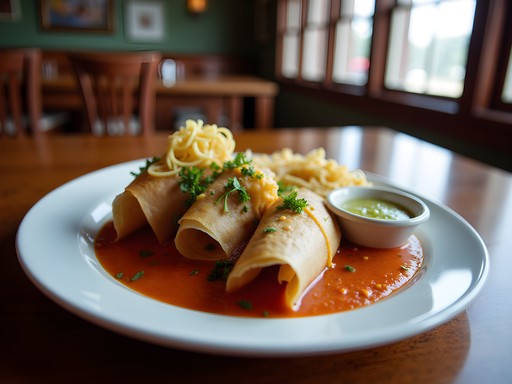
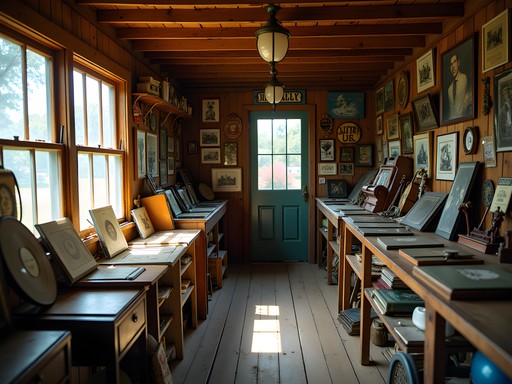


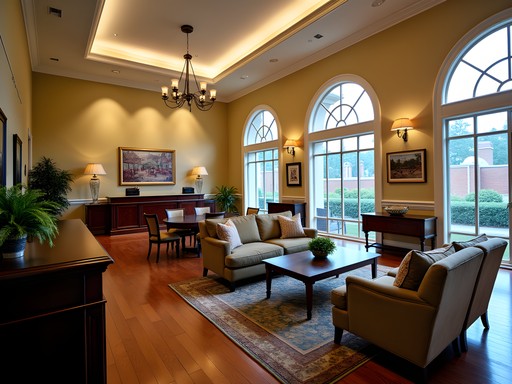
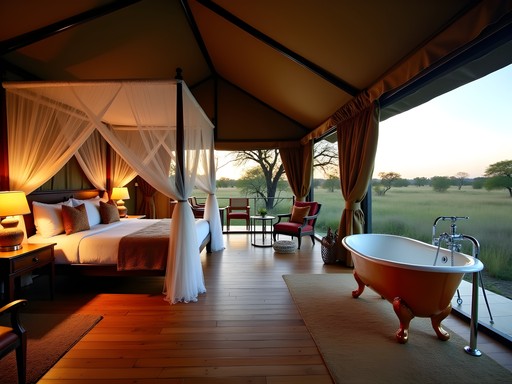
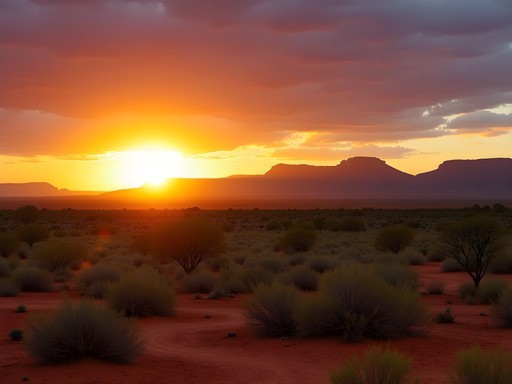
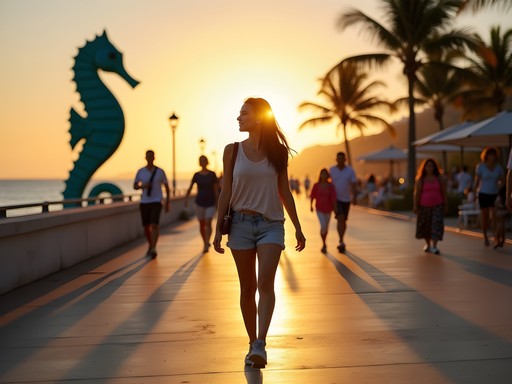

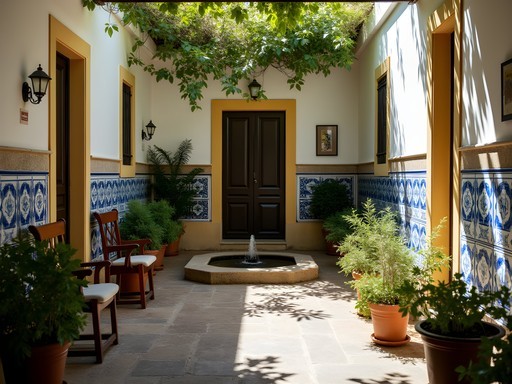
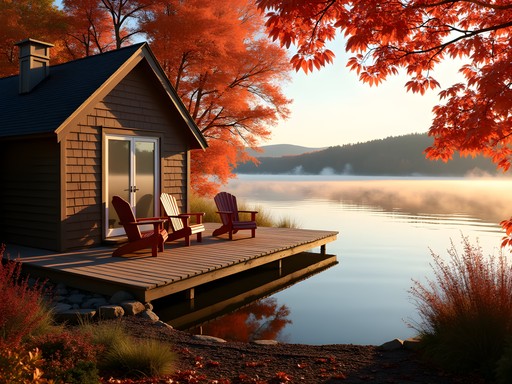

Comments
summerbackpacker
Is it safe for solo travel? First timer here
sunsetqueen
Yeah totally safe. Just use common sense like anywhere. People are really friendly.
redwanderer
Adding this to my list! Thanks for sharing
sunsetqueen
Great post! If anyone's heading there, definitely hit up Doe's Eat Place for tamales. Also the levee at sunset is incredible for photos. I spent a week in Greenville last October and honestly the budget-friendly aspect is so true—my whole week including a decent motel was under $400. The people make it special though, not just the music.
redwanderer
Under $400 for a week?? That's incredible
travelwalker
Really like your photos! Captured the mood perfectly
Savannah Walker
Love this! The Delta is so underrated. I did a similar route last spring but started in Clarksdale and worked my way down. Greenville surprised me too—everyone talks about Clarksdale but Greenville has this authentic, less touristy vibe. That sunset by the Mississippi you described? I had almost the exact same moment. There's something about that river at dusk that just gets you. Did you make it to any of the juke joints outside town? I stumbled into one about 20 minutes out that wasn't on any map and it was the highlight of my trip.
summerbackpacker
Which juke joint was that?? Definitely want to check it out
Savannah Walker
It was called Po' Monkey's but I think it only opens certain weekends. Ask locals when you get there!
oceanlegend
Going there next month! Which venue had the best live music?
Ahmed Palmer
Jeffrey, brilliant piece on Greenville. I passed through the Delta three years ago on a southern music pilgrimage and regret not spending more time there. Your section on the underground craft scene particularly resonates—I found similar hidden artistic communities throughout the rural South that tourists completely overlook. The connection between blues heritage and contemporary makers is fascinating. Did you find the locals receptive to solo travelers asking questions and documenting their stories? I sometimes struggled with that balance between genuine interest and feeling intrusive.
sunsetqueen
Not Jeffrey but I found Delta folks super welcoming when I was there last fall. Just be genuine and don't rush conversations.
oceandiver
This sounds amazing!! Never thought about Mississippi for solo travel
Ana Robinson
Jeffrey, this brings back memories! I took my kids through the Delta two years ago on a road trip from Memphis down to New Orleans. We stopped in Clarksdale but skipped Greenville - now I'm kicking myself! The way you describe Ms. Eloise and those hidden spaces... that's exactly the kind of authentic experience I try to find when traveling with my family. My daughter still talks about the blues musicians we met in Clarksdale who let her try a harmonica. There's something about the Delta that just gets into your soul. Next time we're doing the full route and Greenville is definitely on the list. Did you find it easy to connect with locals, or did you have contacts beforehand?
Jeffrey Ruiz
Ana! That harmonica story is beautiful. I had zero contacts going in - just showed up and started conversations. Coffee shops and diners are gold for meeting people. Your family would love Greenville, it's got that same vibe but quieter than Clarksdale.
bluebackpacker
This is so helpful! Going in November
wildlover
Love this so much! The underground craft scene part really got me. Been wanting to do a cultural trip like this instead of just hitting tourist spots. Did you feel safe traveling solo there as a guy? Thinking about going myself
Jeffrey Ruiz
Totally felt safe! People were incredibly welcoming. Just use common sense like anywhere - don't wander around late at night alone in unfamiliar areas. But honestly, folks looked out for me.
Venture X
Premium card with 2X miles, $300 travel credit, Priority Pass